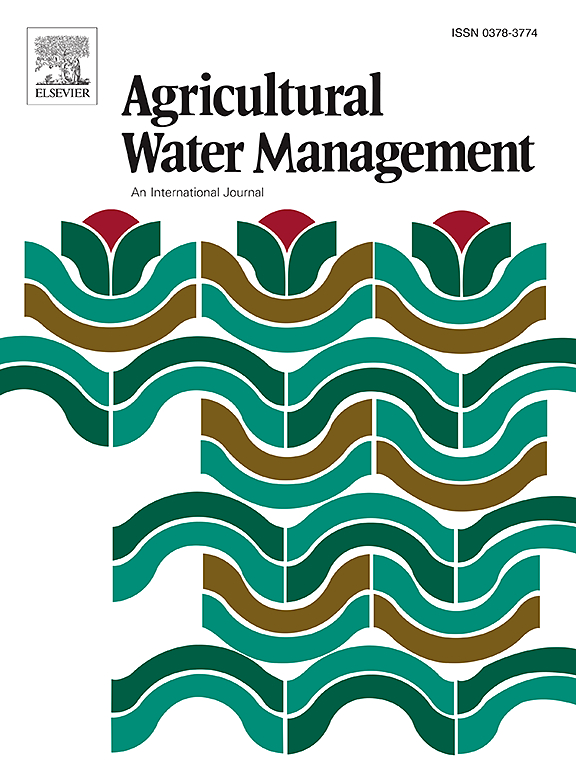通过可持续的幼苗生产升级利用人类排泄物衍生产品:可行性研究
IF 6.5
1区 农林科学
Q1 AGRONOMY
引用次数: 0
摘要
管理人类排泄物和城市固体废物中的有机废物对于更清洁的环境非常重要。最近的循环生物经济模式通过有机废物流和废水再利用带来了可持续资源回收和再利用的理念。人们对人类排泄物的增值进行了许多研究,但由于政策不明确和缺乏可行的商业模式,农民采用生物肥料的情况很差。本研究探讨了通过育苗生产对生活污水和人类排泄物混合堆肥进行资源化再利用的可行性。采用随机完全设计进行了温室试验,以评估生活污水和混合堆肥对苗木生产最佳实践参数的影响。三种蔬菜(洋葱、番茄和甜菜)被用作试验作物。收集了培养基特性、幼苗活力和大肠杆菌污染的数据。经济分析利用用水数据来评估种苗生产的经济可行性。利用废水和混合堆肥育苗与传统做法相当。显著的好处是节约水和化肥成本,创造就业机会,确保粮食和营养安全,打击犯罪等社会弊病,最大限度地减少当地粮食生产系统的碳足迹,减轻环境污染。由于禁止良好农业规范认证,主要限制是将幼苗销售到利基市场。根据当地法规,农民可以生产苗木供其农场使用或在其粮食生产网络中销售。决策者应该审查人类排泄物肥料的使用,并且需要监管当局的积极参与,以便允许对生态创新(如幼苗)进行生物认证。这将为苗木生产商提供进入利基市场的机会。本文章由计算机程序翻译,如有差异,请以英文原文为准。
Upcycling human excreta-derived products through sustainable seedling production: Feasibility studies
Managing human excreta and organic waste from municipal solid waste is important for a cleaner environment. The recent circular bioeconomy paradigm brought the idea of sustainable resource recovery and reuse through valorising organic waste streams and wastewater reuse. Many studies have been done on human excreta valorisation, but the adoption of bio-fertilisers by farmers is poor due to unclear policies and the absence of viable business models. This study investigated the feasibility of upcycling domestic wastewater and human excreta-derived co-compost through seedling production. A greenhouse experiment was done using a randomised complete design to assess the effects of domestic wastewater and co-compost on parameters for best practices in seedling production. Three vegetables (onion, tomato and Swiss chard) were used as test crops. Data was collected on growing media characterisation, seedling vigour and E. coli contamination. Economic analyses used water usage data to assess the financial viability of seedling production. Using wastewater and co-compost on seedling production was comparable to conventional practices. The significant benefits are saving water and fertiliser costs, creating employment, ensuring food and nutrition security, combating social ills such as crime, minimising the carbon footprint in local food production systems and mitigating environmental pollution. The major limitation is marketing the seedlings to niche markets due to prohibitions on Good Agricultural Practices certifications. Depending on local regulations farmers may produce seedlings for use on their farms or market them in their food production networks. Policymakers should review the use of human excreta fertilisers, and active participation of regulatory authorities is needed to allow bio-certification of eco-innovations such as seedlings. This will provide opportunities for seedling producers to penetrate the niche market.
求助全文
通过发布文献求助,成功后即可免费获取论文全文。
去求助
来源期刊

Agricultural Water Management
农林科学-农艺学
CiteScore
12.10
自引率
14.90%
发文量
648
审稿时长
4.9 months
期刊介绍:
Agricultural Water Management publishes papers of international significance relating to the science, economics, and policy of agricultural water management. In all cases, manuscripts must address implications and provide insight regarding agricultural water management.
 求助内容:
求助内容: 应助结果提醒方式:
应助结果提醒方式:


